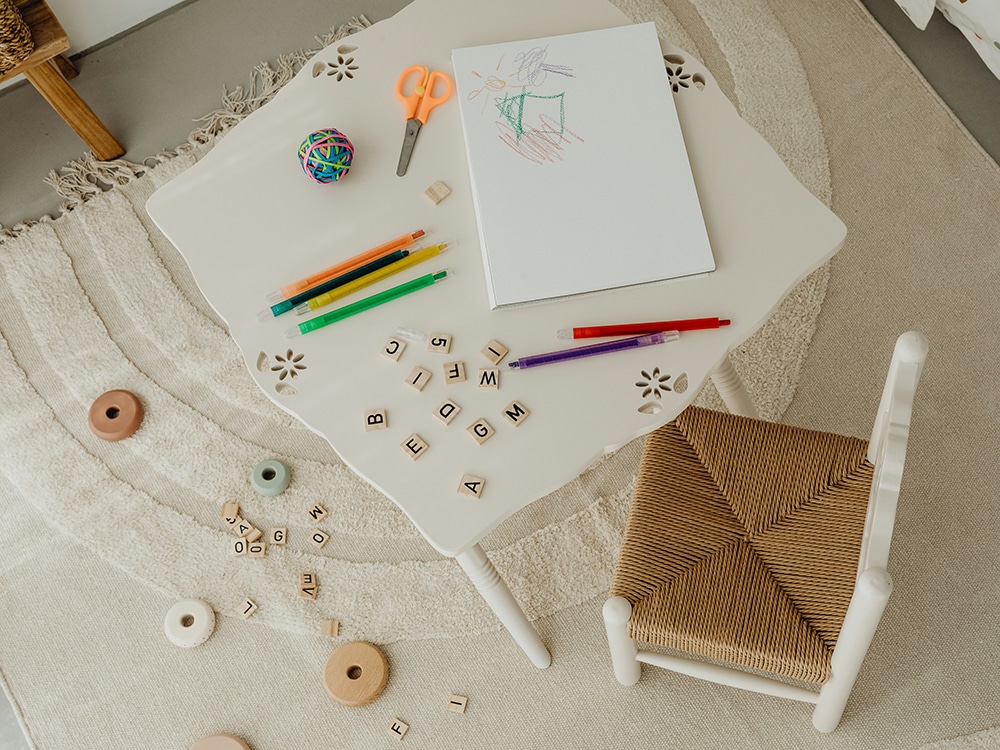Living Well Counselling Services in Calgary, Alberta, understands the significance of mental health, especially for children and teens. That’s why we specialize in providing children’s counselling, facilitated by our team of experienced Calgary-based counsellors. Our psychological services are designed to be accessible, with extended hours and a range of options, including in-person sessions. If you’re searching for a child psychologist in Calgary, contact us today to see how we can help children navigate their challenges.
The world can be a challenging place, even for those of us who are “grown up.” On top of the challenges that we experience every day, children need to navigate the world while dealing with changes in their lives, a struggle for autonomy, and a rapidly developing scope of responsibilities. Needless to say, it can be tough being a kid sometimes, and this can have an impact on their mental health. Just as therapy can help adults, it can also be incredibly valuable for children and teens when it comes to navigating issues like:
- Anger management or ability to regulate their emotions
- Grief and loss
- Divorce and separation
- Crisis and trauma
- Anxiety and depression
- Developmental issues
- ADHD
Our psychological services aim to help children work with these challenges. We offer evidence-based approaches, including Cognitive Behavioural Therapy, to ensure effective outcomes.
Does My Child Really Need Family Counselling?
Well, if you think your child may need children’s counselling, that is generally a pretty good indicator that something is going on. To put this into more concrete terms, ask yourself the following questions:
- Is your child experiencing intense discomfort or distress, and/or has the problem been prolonged?
- Is the problem having an impact on your child’s development (social-emotional, cognitive, and/or physical development)?
- Is the problem impacting multiple areas of your child’s life (school, family, peer group, extracurricular activities, etc.)?
- Lastly, is the family being affected by the problem or the child’s behaviours?
If the answer to any of these questions is yes, it is likely that your child could benefit from family psychology and counselling for children.
Parent Involvement in the Child Psychology Process
Parents play a critical role in the therapy process for children. As a parent, you know your child best and will be the greatest source of information to inform the therapy process. On top of this, parents also play a critical role in integrating skills from therapy into your child’s life. As such, it is important for the parents to stay informed and meet with the therapist frequently to discuss their child’s progress and recommendations as the treatment continues. Our family psychology approach ensures that both the child and family are supported throughout the journey.
How Do Child Psychologist Services Work?
This is a great question, and the answer varies from child to child. However, as you may expect, some of the more traditional “sit and tell me your problems” therapy doesn’t seem to connect with children (or even a significant portion of adults). One modality of practice that has been seen to be effective for children with a wide variety of social, emotional, behavioural, and learning problems is play therapy (Reddy, Files-Hall & Schaefer, 2005). Research shows that play therapy is especially effective for children ages three to twelve years (Carmichael, 2006; Gil, 1991; Landreth, 2002; Schaefer, 1993).
Play is the first language we learn as children. As we grow, our play styles may change and develop, but play remains a fundamental way that we express our inner thoughts and feelings (even those that we are not consciously aware of). Play therapy is the use of play in a counselling setting, where the play is at the forefront of the intervention. This means that the play itself becomes the treatment. Through play, an individual can communicate and reflect on their experiences while providing psychological distance. Said another way, conducting therapy through play allows individuals to engage with emotions that may be too strong to engage with directly or so deeply buried that they are unaware that they are even there.
Just like all other models of therapy, play therapy draws upon research and theoretical frameworks. As such, there are many different models play therapy can utilize, depending on the training of the practitioner. Some models of play therapy are Humanistic, Gestalt, Adlerian, Cognitive Behavioural, Psychoanalytic, and Integrative, to name a few.
Children’s Therapist
There are several different types of play that a practitioner may utilize:
- Expressive art (drawing, painting, crafts)
- Clay
- Sand tray
- Music
- Movement and dance
- Puppets
- Fantasy and dress-up
- Therapeutic stories
The role of the therapist is to make decisions regarding the model of play therapy and the play intervention that is utilized, based on the individual needs and presentation. During the chosen intervention, the therapist will observe and respond to create awareness, self-reflection, understanding, and self-acceptance.
How Living Well Can Help
If your child is struggling and you are unsure if therapy is the right step, Living Well offers a free 20-minute consultation to see if we are the right fit for you. This consultation can also help to answer any of your questions and point you in the right direction for help. Our youth counselling services aim to help children and teens overcome their challenges.
Our team specializes in evidence-based practices, such as Cognitive Behavioural Therapy, to help children with a variety of issues, including ADHD. Our psychological services are designed to help children and families navigate life’s challenges effectively. Counselling provides a safe space for your child to express themselves and develop coping strategies.
Information Adapted from: Lorri Yasenik and Ken Gardner Rocky Mountain Play Therapy Institute Green Stream Training.

